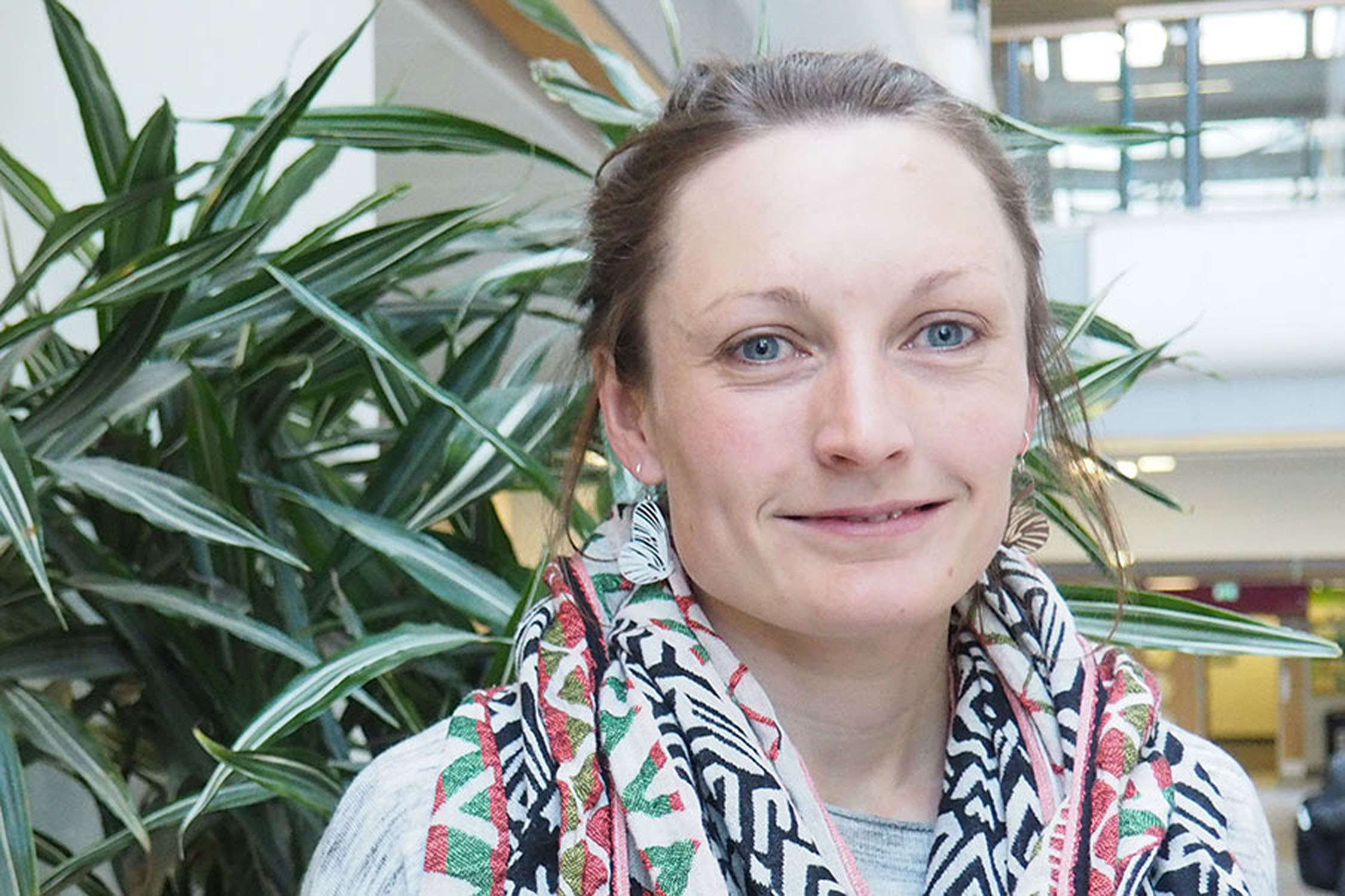In our book, Helen Mort’s Sheffield and Peaks-inspired verse is as good as poetry gets. With one foot in Sheffield and another in Derbyshire, this seriously gifted local voice has the entire contemporary poetry landscape in her sights.
Born in Sheffield and brought up in Chesterfield, Helen Mort published her first full-length collection, Division Street, to much acclaim in 2013. I’ll make no bones about it: it gave me instant goosebumps upon first reading. Sheffield has a leading role and is writ large, beloved and everywhere in the book. Helen’s poems pack a real punch and conjure a sense of place, love and longing in such a way that recalls greats like Heaney or Hughes. Nominated for the TS Eliot Prize and the Costa Poetry Award, Division Street is a paeon to Sheffield of the 80s and 90s, a lyrical love letter that moves from biting political comment to a celebration of the author’s coming of age.
Derbyshire claimed Helen for their poet laureate, Carol Ann Duffy pronounced her one of poetry’s "brightest stars" and in 2014 she was named a Next Generation Poet by the Poetry Book Society. We caught up with Helen to hear more about the hills, people and places that inspire her.
2020 UPDATE: Helen has been very busy since we published this interview in 2015! Her most recent work is The New Lyrical Ballads, a reimagining of Wordsworth in contemporary Cumbria for the BBC, and a poem about Marilyn Monroe released in the New York Times.
How would you describe your work?
Short, lyric poems defined by a strong sense of place, an obsession with names and a bad people-watching habit.
What inspires you?
Autumn; the view from the top of the hill; ghost stories; Sheffield pubs; places you can never go back to; friendship; the aftertaste of whisky; the miners' strike and lost love. In no particular order. I think inspiration likes to pull your chair away when you aren’t looking. I’ve got poems from landfill sites, empty pint glasses, pub quizzes, footpaths and my own surname. It’s often the most unlikely things that set a poem off.
What’s your workspace like?
My best workspaces are Stanage Edge and Whiteley Woods – I like to compose in my head, hearing a line and then running it over, trying to remember images and sounds, so I get most of my ideas for poems when I’m out fell running, rock climbing or walking my dog, Charlie. Charlie’s a whippet, the ultimate Sheffield hound. He bears a striking resemblance to Pete McKee’s character, Frank the dog.
What do you love about Sheffield?
I was working in a hospital in Bakewell recently and one of the patients told me they used to say Sheffield was a “dirty picture in a golden frame”. I love being so close to the gritstone edges and villages of the Peak District, but I think Sheffield city centre is pretty golden these days too. I love the pubs (I’m convinced we’ve got the best pubs in the country) from Kelham Island up to The Greystones. I love the parks. I love the feeling that you’re living in the world’s biggest village. And I love the names of everything in the city, streets and districts – I called my first collection Division Street, partly in recognition of that.
What would you do to improve the city?
Sheffield has an embarrassment of riches when it comes to poetry and live literature events, but it could do with a central, spacious accessible venue, a centre for artists to go to, a hub for all this great activity. That would make the city centre complete for me. If I was miraculously rich, I’d also give back the money that Sheffield museum services had cut. And make sure the libraries could stay open! (Charlie the whippet says that’s all very noble, but he’d also like free pork scratchings on every corner of the city if that could be arranged. And a pork pie fountain in the Peace Gardens).
What are you currently working on?
Since my first collection came out, I’ve started work on a second book of poems, many of which deal with the contested history of women’s mountaineering. The book includes a sequence of poems addressed to the late Alison Hargreaves, who came from Belper and died on K2. Alison was the first woman to climb Everest without support, but she was vilified by the media because she was a mother too. She’s a real inspiration to me, both as a writer and as someone who loves the outdoors. [Since this interview took place, this poetry collection has now been published as No Map Could Show Them.] I’m also about to start work on my first novel, Black Car Burning, set in Sheffield and the Peak District [this has also now been published!]. It’s about rock climbing, relationships, policing post-Hillsborough and, above all, it’s about trust. Prose is a new challenge for me because it demands such a different, sustained kind of attention. I like to set myself new challenges from time to time. In a funny way, writing in a new genre takes the pressure off a bit.
Division Street is hugely accomplished and brings to mind Coleridge’s definition of poetry: “the best words in the best order”. While you were writing the collection, did you have a sense that you were on to something special?
Absolutely not! The poems in Division Street were written over a period of about six years, so they weren’t written as a book from the outset. In fact, I only had a sense of them as a collection when I slowly began to put them together with help from my brilliant editor at Chatto & Windus and some good friends. Because poetry is such a condensed medium, I think you always just have to keep your focus on the next poem (or even the next line), on making each word as strong as possible. The bigger picture comes later.
Is having one foot in Sheffield and another in Derbyshire the best of both worlds?
I was born in Sheffield and grew up in Chesterfield, so I’ve always had a bit of a dual South Yorkshire/North Derbyshire citizenship I guess! When I was growing up, Sheffield always seemed like the bright lights, like a cool older sister who was allowed to stay out past midnight. It was where you went shopping and clubbing and all the things you want to do when you’re a teenager. Now, I live in Greystones, about ten minutes from the top of Burbage Edge, so I’m almost on the Derbyshire border really. In my writing, I’m really interested in those kinds of boundaries, the places where one thing bleeds into another. I’m also fascinated by how we build an idea of "home". I can’t think of two better places than Sheffield and Derbyshire. I’m afraid my loyalties lie with the Spireites though (I’m poet-in-residence for Chesterfield FC). And I’d rather be called "duck" than "love".
- Words by
- Joanne Mateer







